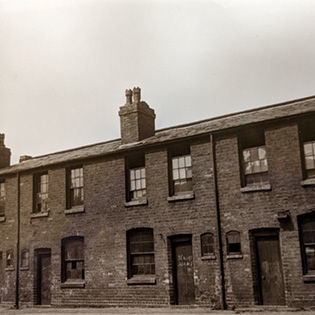Housing Problems and Solutions in Birmingham, 1901 - 1914: Nettlefold Courts and the "No Build Policy" Speaker
- Dates
- Thursday 18 April 2024 (19:00-20:30)

Centre for Midlands History and Cultures Seminar
Speaker: Robert Brown
In 1901, concern about housing conditions and the slums in Birmingham was highlighted by the publication of a series of articles, Scenes in Slumland, by J. Cuming Walters for the Birmingham Daily Gazette. The City Council responded by setting up a housing committee under the Chairmanship of Councillor Nettlefold. Although local authorities had powers under an Act of 1890 to build municipal houses, Nettlefold and his committee were staunchly against this option. One of their first acts was to reject a recommendation by the health committee to build 621 houses at Bordesley Green and 76 flats at Potter Street.
The committee also rejected a petition received from Reverend Thomas Bass to declare the Dartmouth Street neighbourhood an unhealthy area. Instead, they choose to deal with unfit houses on an individual and not an area basis. This was a cheaper option, as it did not entail rehousing displaced occupants and minimised payments of compensation to landlords. The renovations of slum property became known as the ‘Nettlefold courts’ but was dubbed by the press as the ‘no build’ policy.
Robert Brown is a PhD student at the University of Birmingham, currently researching why the council failed to build any council houses in the Edwardian period and the extent to which the Nettlefold courts addressed the housing problems of the city.
[Photo credit: Adams Street, no. 3 court, Birmingham. Warwickshire Photographic Survey Collection, WK/B11/1561-2478. Reproduced with permission of Library of Birmingham.]